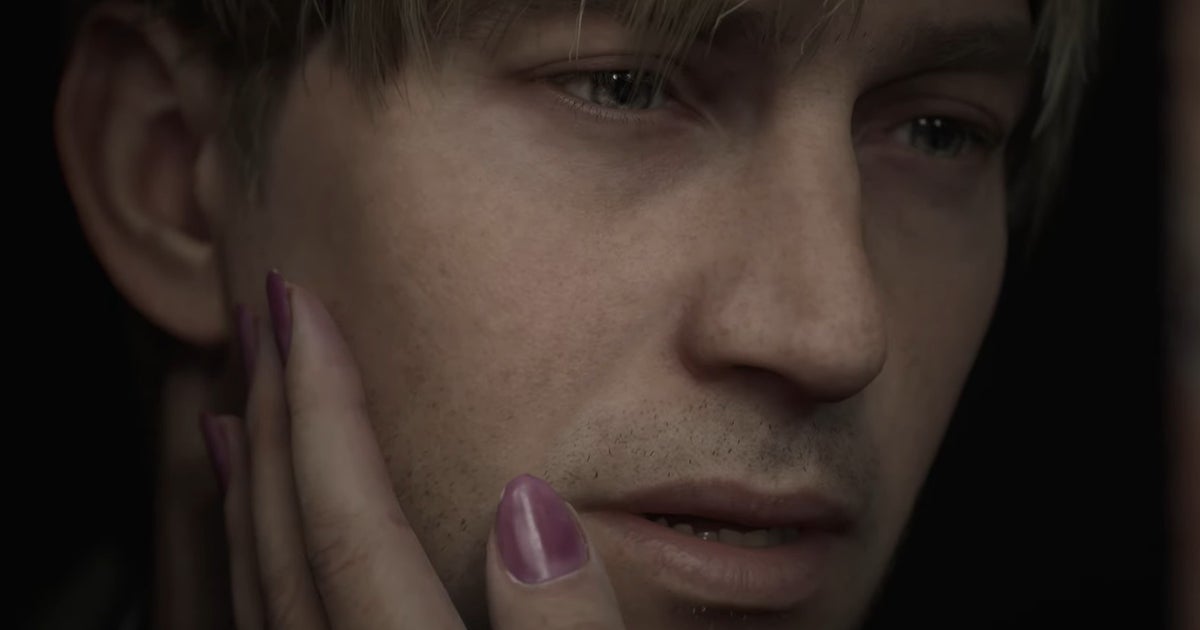“], “filter”: { “nextExceptions”: “img, blockquote, div”, “nextContainsExceptions”: “img, blockquote, a.btn, a.o-button”} }”>
It was the expected result in the end – Tadej Pogačar in first and Jonas Vingegaard second – but not in the way that many had hoped. Pogačar seems to have ended the Tour de France bored and mentally defeated, a stark contrast to his physical domination of the race.
Vingegaard ended the Tour in higher spirits, despite not winning a stage or even matching his 2024 climbing level. The third favorite, Remco Evenepoel, left the Tour on stage 14 after already falling out of the GC.
Florian Lipowitz and Oscar Onley – 3rd and 4th place in GC, respectively – were the revelations of this year’s Tour de France. Both riders had shown promising results in the last few seasons, but few would have expected them to battle for the GC podium in Paris. Other storylines included Jasper Philipsen crashing out, Mathieu Van der Poel leaving the Tour through illness, and Biniam Girmay failing to win a stage after being so dominant last year.
In this article, we are going to zoom in on five stages where the Tour de France was won (and lost).
#1 – Stage 5 Time Trial
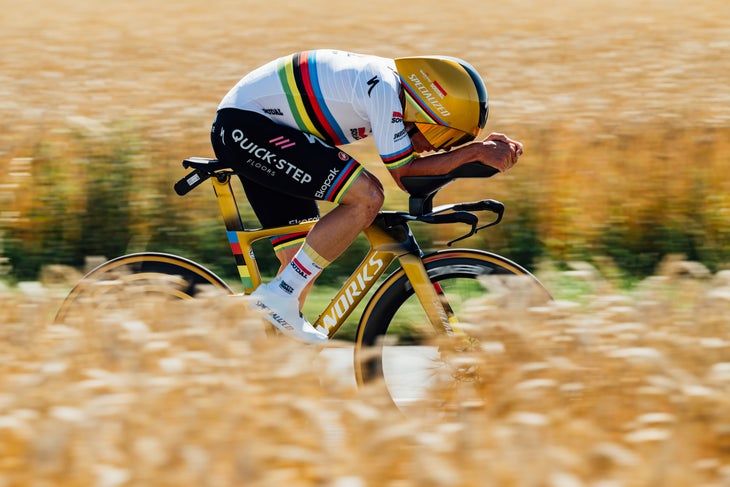
While the opening stages were hectic, they didn’t produce significant GC gaps amongst the favorites. In fact, Pogačar and Vingegaard were only separated by eight seconds before stage 5’s time trial. It was a flat effort in Caen, stretching 33km with just 191m of climbing. But by the end of the stage, the GC gaps had exploded.
Vingegaard had a horrible time trial, losing one minute and five seconds to Pogačar and 1:21 to the stage winner, Evenepoel. Pogačar had a fantastic TT, beating all of the time trial specialists that had been saving their legs for this very effort. Onley finished 23rd on the stage, 1:04 behind Lipowitz in 6th. Not much was said about this at the time, but the gap between 3rd and 4th place in GC would only be 1:12 in Paris.
GC Standings After Stage 5:
1st: Tadej Pogačar 17:22:58
2nd: Remco Evenepoel +0:42
3rd: Kévin Vauquelin +0:59
4th: Jonas Vingegaard +1:13
–
9th: Florian Lipowitz +2:31
11th: Oscar Onley +2:41
#2 – Stage 12 on Hautacam
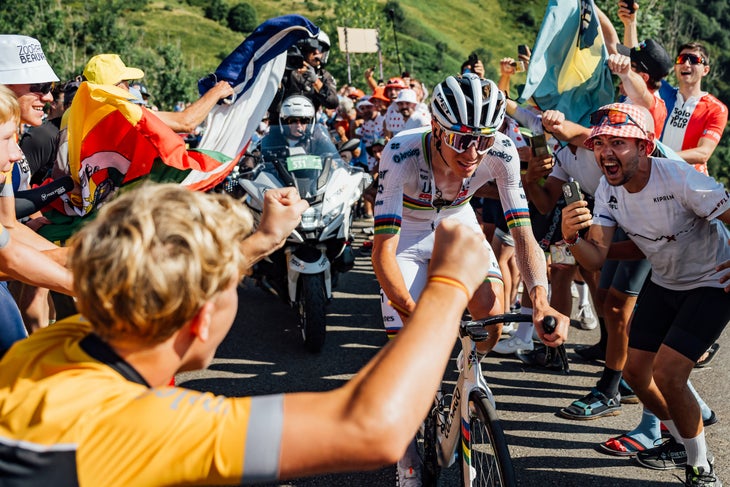
It was nearly a week until there were significant GC gaps again, and this time, it was the infamous Hautacam doing the damage. Everyone expected this stage to be hard, and for the time gaps to be significant. But no one expected the gap between Pogačar and Vingegaard to be quite this big.
In hindsight, it’s clear that Vingegaard didn’t have great legs on Hautacam. In fact, this was a below-average climbing performance for the Dane. You could see it happening in real-time during stage 12. With all due respect, Vingegaard only finished 13 seconds ahead of Lipowitz and 50 seconds ahead of Tobias Halland Johannessen and Onley. The climbing level that Vingegaard has shown in his career is far better than what was displayed on Hautacam.
This single ascent accounted for more than half of Pogačar’s winning gap in Paris. By the end of the Tour, Pogačar was 4:24 ahead of Vingegaard, including 18 bonus seconds. Vingegaard lost 2:10 on Hautacam alone. Take a close look at these power numbers from Hautacam, and keep them in mind when we analyze the performances on Peyragudes and Mont Ventoux.
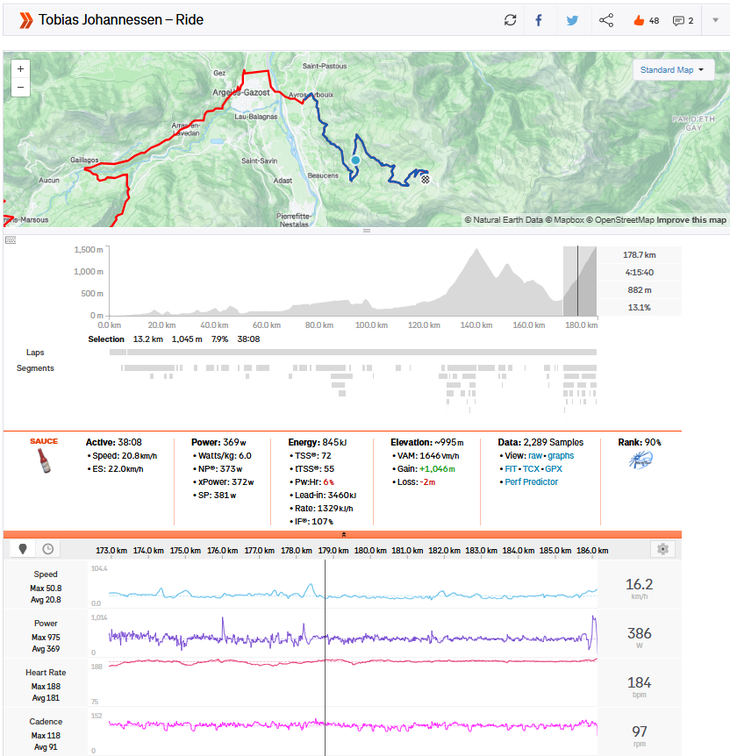
Johannessen – Hautacam
- Time: 38:08
- Average Power: 369w (6w/kg)
- VAM: 1,646 Vm/h
Pogačar: 35:08 at ~6.7w/kg
Vingegaard: 37:18 at ~6.3w/kg
In terms of the GC, Pogačar now had 3:31 on Vingegaard and more than five minutes on Lipowitz. Felix Gall lost 9:21 to Pogačar on Hautacam, and Ben Healy lost more than 13 minutes. It is incredible to think that in less than a week’s time, Gall was riding into the top 5 on GC while Healy was battling for a top 10.
GC Standings After Stage 12:
1st: Tadej Pogačar 45:22:51
2nd: Jonas Vingegaard +3:31
3rd: Remco Evenepoel +4:45
4th: Florian Lipowitz +5:34
–
6th: Oscar Onley +6:05
#3 – Stage 13 Peyragudes Time Trial
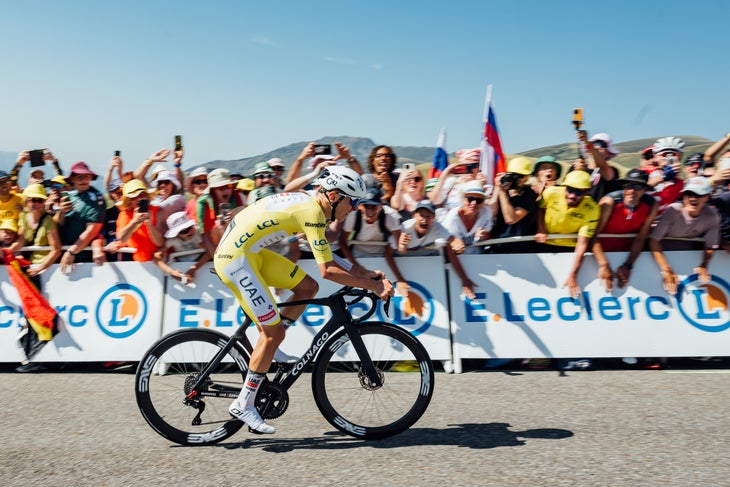
We expected the craziest 20-minute w/kg performances from stage 13’s uphill time trial, and that is exactly what we got. Pogačar produced roughly 7.5w/kg for 17 minutes to win the stage ahead of Vingegaard and Primož Roglič.
Vingegaard showed his best form of the Tour thus far, finishing just 36 seconds behind Pogačar. After the disaster on Hautacam, it was a promising performance for the Dane. Lipowitz and Onley finished just 10 seconds apart, with the German coming out on top.
Roglič had an incredible ride to finish third on the stage, while Evenepoel lost nearly three minutes in a 25-minute stage. But these riders (and more) would fall out of the GC – some out of the Tour – over the following days.
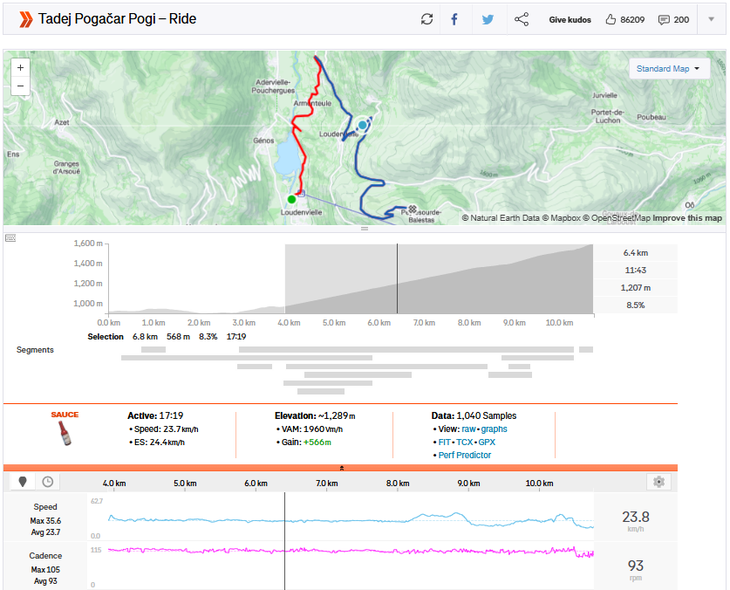
Pogačar – Peyragudes
- Time: 17:19
- Estimated Average Power: ~475w (7.5w/kg)
- VAM: 1,960 Vm/h
Vingegaard: 17:45 at ~7.3w/kg
GC Standings After Stage 13:
1st: Tadej Pogačar 45:45:51
2nd: Jonas Vingegaard +4:07
3rd: Remco Evenepoel +7:24
4th: Florian Lipowitz +7:30
5th: Oscar Onley +8:11
#4 – Stage 16 on Mont Ventoux
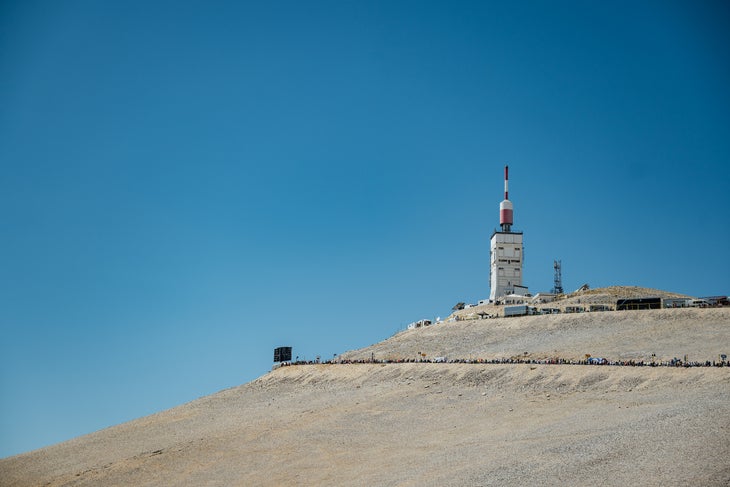
One of the most confusing stages of the entire Tour was stage 16 on Mont Ventoux. After letting a small breakaway go, UAE Team Emirates-XRG then let a massive breakaway go on the lead-in to Ventoux. They attempted to control the gap, but the break was soon more than six minutes up the road. With a headwind on the second part of Ventoux, it would be difficult to catch a strong breakaway of riders that were willing to work together.
After UAE Team Emirates-XRG paced the majority of the stage, Team Visma | Lease a Bike came to the front at the bottom of Ventoux. Sepp Kuss finished off the leadout for Vingegaard, who attacked up the left side of the road with around 14km to go. Only Pogačar was able to follow, and that’s when the games began.
Vingegaard attacked over and over again, using his teammates as satellite riders as he caught them from the breakaway. Pogačar wouldn’t budge, always holding Vingegaard’s wheel, and once throwing down an attack of his own. But when Vingegaard was able to follow, the pair sat up with only a few kilometers to go. The breakaway was in sight, a famous stage win up for grabs, but neither Pogačar or Vingegaard wanted to take the risk of chasing.
The breakaway won the stage, while Pogačar outsprinted Vingegaard in the final corner. While the time gap wasn’t significant, the psychological damage must have been because Vingegaard had just done one of the best climbs of his life. Surely, he was feeling good about his legs, but he must have also been discouraged that he couldn’t drop Pogačar.
The yellow jersey, on the other hand, may have been having a bad day. Why else would he not go for the stage win on Mont Ventoux, especially after his teammates paced all day?
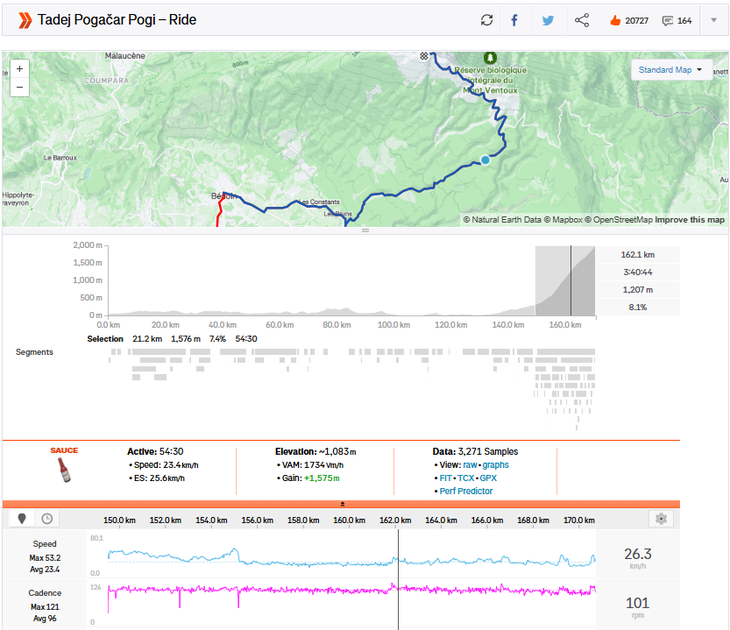
Pogačar – Mont Ventoux
- Time: 54:30
- Estimated Average Power: ~410w (~6.4w/kg)
- VAM: 1,734 Vm/h
Vingegaard: 54:32 (~6.5w/kg)
A few hundred meters behind, Onley and Lipowitz were battling it out on the slopes of Ventoux. Lipowitz eventually won out, putting 38 seconds into Onley and extending his GC lead to two minutes ahead of the Scotsman.
GC Standings After Stage 16:
1st: Tadej Pogačar 58:24:46
2nd: Jonas Vingegaard +4:15
3rd: Florian Lipowitz +9:03
4th: Oscar Onley +11:04
#5 – Stage 18 on Col da la Loze
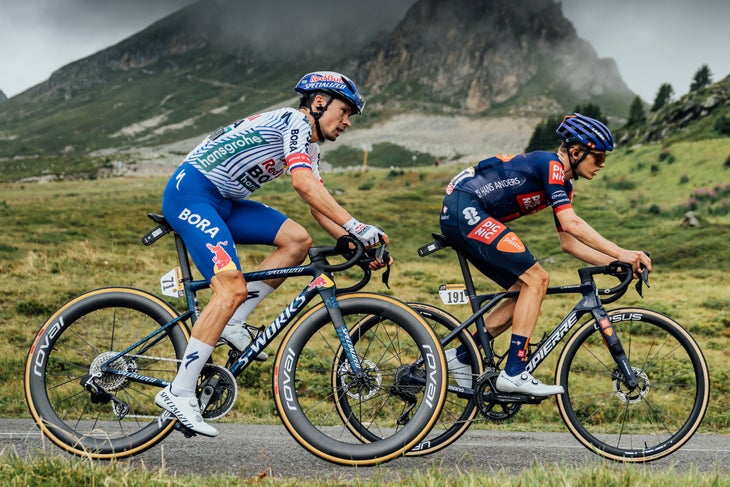
172km in length with 5,600 meters of climbing and a summit finish atop the Col de la Loze… This was the last opportunity for Vingegaard to truly crack Pogačar. The Dane and his team certainly tried, but in the end, Vingegaard’s tank was empty.
Stage 18 was the true embodiment of the physical and mental fatigue that riders experience at the Tour de France. Just a few days prior, Pogačar and Vingegaard had done nearly 6.5w/kg for an hour on Mont Ventoux. Now, they were riding up the Col de la Loze at 5.5w/kg, and they were still dropping their rivals.
The Tour had been raced from the start, and the fatigue was finally catching up with the entire peloton; even Tadej Pogačar. He is human, and he was tired. Vingegaard tried to attack in the final kilometers, more of a ‘thank you’ gesture to his team than a violent acceleration. Pogačar countered easily, putting nine seconds into Vingegaard and another four into Onley. Lipowitz was the biggest loser on the stage, nearly sliding out of his podium spot after attempting a long-range attack.
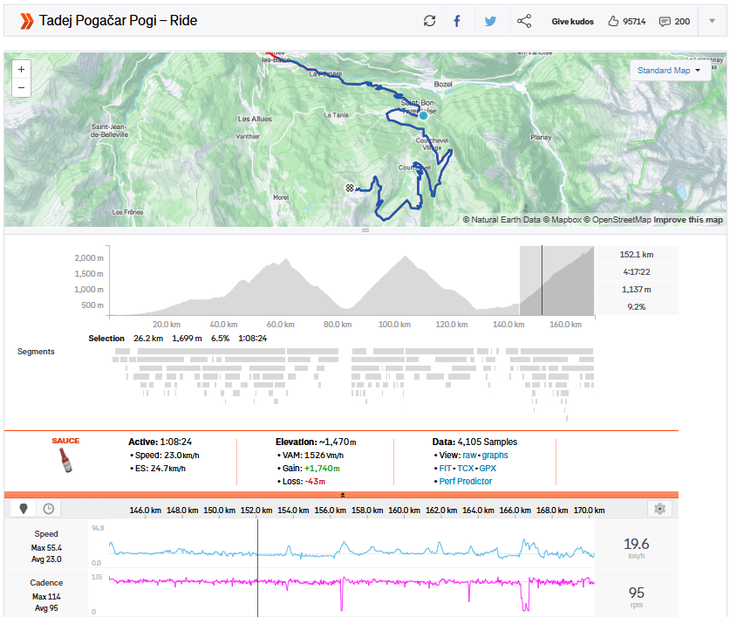
Pogačar – Col de la Loze
- Time: 1:08:24
- Estimated Average Power: ~360w (~5.6w/kg)
- VAM: 1,526 Vm/h
A few hundred meters behind, Onley and Lipowitz were battling it out on the slopes of Ventoux. Lipowitz eventually won out, putting 38 seconds into Onley and extending his GC lead to two minutes ahead of the Scotsman.
GC Standings After Stage 18:
1st: Tadej Pogačar 66:55:42
2nd: Jonas Vingegaard +4:26
3rd: Florian Lipowitz +11:01
4th: Oscar Onley +11:23
Not much would happen on stage 19 to La Plagne. Riders tried over and over again to get away from UAE Team Emirates-XRG during the shortened stage, but only one rider was successful: Thymen Arensman. The Dutchman took his second stage win, this time ahead of Vingegaard who gained two bonus seconds on Pogačar. That was the one and only time that Vingegaard gained time on Pogačar during this entire Tour.
Power Analysis data courtesy of Strava
Strava sauce extension
Source link
